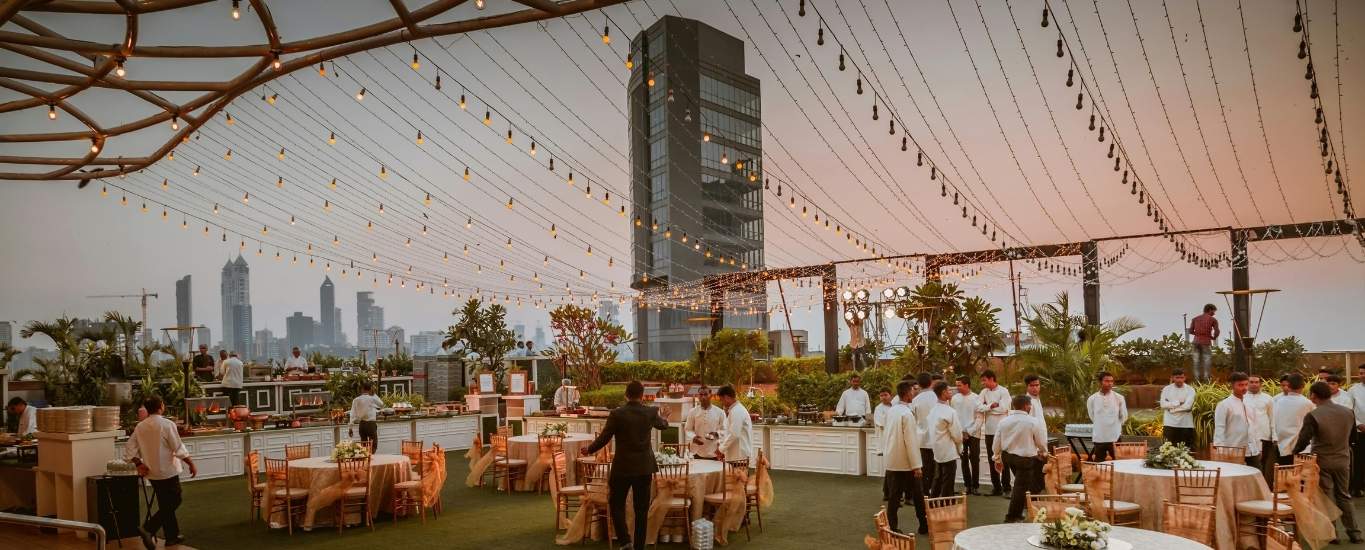Planning a corporate event isn’t just about picking a pretty place and calling it done. It’s more like organizing a surprise celebration for an entire company—it needs to be strategic, enjoyable, and memorable. And at the heart of it all? The corporate venue. It can truly make or break the experience.
Whether you’re planning a formal gala dinner, a product launch, an employee appreciation night, or even a team offsite in Ahmedabad, your choice of venue matters more than you think. Let’s explore what makes a venue not just suitable, but unforgettable.
Understand the Purpose of Your Corporate Event
Before you search “best corporate event spaces near me,” define your event objective.
Celebrations vs. Strategy-Focused Events
Are you recognizing milestones or launching new initiatives? A milestone celebration calls for a festive vibe, while AGMs or leadership summits need more structure.
Event Type
Holiday Mixer, Networking Event, or Team Retreat? Each format brings a different ambience and guest expectations.
Audience Scope: Internal or External Guests?
Inviting media, partners, or stakeholders means prioritizing formal settings and robust event branding opportunities.
Set a Smart and Realistic Budget
The venue might eat up a big chunk of your budget but don’t ignore the extras that turn “just a party” into a memorable brand experience.
- Transparent Pricing and Hidden Charges: Look out for electricity fees, corkage, and cleanup charges. Confirm if event insurance is required.
- Balanced Allocation: Budget for catering, event decor, entertainment, and tech infrastructure, like Wi-Fi and AV rentals.
Choose a Strategic Location
- Proximity to Office or Central Business District (CBD): Accessible locations ensure better turnout.
- For Outstation or International Guests: Ensure closeness to the airport, business hotels, and public transportation.
- Check Parking and Ride-Share Drop Zones: Or consider venues offering valet services.
Know Your Guest Count
- Always Buffer Your RSVPs: If expecting 150 attendees, plan for 170 to avoid capacity issues.
- Flexible Layouts for Multiple Activities: From panel discussions to dance floors, venue versatility matters.
Match Venue Type to Event Theme
- Formal vs. Informal: A banquet hall suits a formal dinner, while a rooftop bar adds flair to a relaxed celebration.
- Indoor vs. Outdoor Options: Outdoor events need backup plans for the weather.
- Unique or Unconventional Venues: Try art galleries, converted warehouses, or even co-working hubs for modern vibes.
Prioritize On-Site Amenities
- AV Equipment, Wi-Fi, Backup Power Supply: Always have redundancies for tech issues.
- Furniture, Decor, and Lighting Packages: Confirm what’s included and what comes at a cost.
- Clean Restrooms, Green Rooms, Accessibility: Don’t forget about wheelchair access, inclusive signage, and changing spaces.
Consider Food and Beverage Flexibility
- In-house vs. External Catering: Some venues require their vendors—but others offer flexibility.
- Diverse Menu Options: Account for vegan, gluten-free, Jain, and low-carb dietary needs.
- Bar Services: Confirm liquor license availability and bartender staffing.
Check Availability and Flexibility
- Peak vs. Off-Peak Rates: Mid-week events or non-festive months often yield better pricing.
- Setup and Teardown Windows: Some venues rush you out—others offer grace periods for decor and setup.
Focus on Ambience and First Impressions
- Natural Lighting, Built-in Decor, and Venue Vibe: If it looks amazing already, you save on decor costs.
- Customization for Corporate Branding: Can you add your company logos, LED backdrops, or interactive brand installations?
Plan for Entertainment and Engagement
- DJ, Live Band, Emcee: Confirm noise permissions and venue acoustic capabilities.
- Interactive Games and Team-Building Zones: Add escape rooms, VR booths, or karaoke corners to keep energy high.
Ensure Safety and Legal Compliance
- Emergency Exits, Fire Safety, Security: Confirm availability of fire extinguishers, emergency exits, and trained personnel.
- First Aid and Medical Support: Especially for events with over 100 guests.
Inspect Before You Invest
- Pre-Visit Checklist: Inspect acoustics, cleanliness, room flow, and technology compatibility.
- Red Flags to Watch For: Poor lighting, unresponsive staff, or unpleasant odours are warning signs.
Check Reviews and Real Feedback
- Online Ratings Aren’t Enough: Look for photo evidence, mentions of staff service, and event-day execution.
- Ask Around: Get recommendations from industry peers or use event management forums.
Post-Event Evaluation
- Feedback Forms and Surveys: Use tools like Google Forms or event management software to collect insights.
- Measure ROI: Track attendance rates, engagement levels, and brand recall metrics.
FAQs
What should be the ideal lead time for booking a corporate party venue?
Ideally, book 2–3 months in advance, especially if your event falls during peak seasons like December or festival months.
How do I make sure the venue aligns with my company’s brand image?
Think about your company’s culture. A creative firm might enjoy an artsy venue, while a financial firm might prefer a classy banquet hall. Match the energy.
Can I negotiate costs with the venue manager?
Absolutely! Don’t hesitate to negotiate for package deals or off-peak discounts—especially if you’re booking early or bringing a large crowd.
What should I include in my venue contract?
Make sure it covers the date, time, cancellation policy, inclusions (like AV, chairs, decor), extra charges, and payment terms.
Should I hire an event planner or manage it in-house?
If it’s a big or high-stakes event, a planner can save you stress and time. For smaller events, a well-organized in-house team should suffice.
